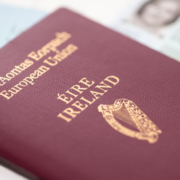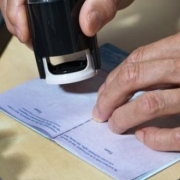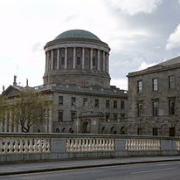The Minister for Health and the Minister for Justice have answered parliamentary questions relating to the regularisation scheme for undocumented migrants, and access for Covid-19 vaccines for the undocumented, respectively.
On Thursday 14th January 2021, Neale Richmond TD asked the Minister for Justice for an update on the promised scheme for undocumented persons to regularise their status in the State, and if undocumented residents in Ireland will receive assurances they will not be deported if they present to their local immigration office to regulate their status as suggested by her Department.
In response to this, Minister Helen McEntee stated as follows:
“I propose to take Questions Nos. 165 and 166 together.
The Programme for Government contains a commitment to bring forward a regularisation scheme within 18 months of the formation of the Government, to create new pathways for long-term undocumented people and their dependents, meeting specified criteria and bearing in mind Ireland’s European Union (EU) and Common Travel Area (CTA) commitments.
Currently there is no scheme for the undocumented in place but work is underway in my Department to give effect to this commitment. This work is being informed by an assessment of international best practice and having regard to our EU and CTA commitments. I intend to consult with relevant Government Departments, civil society and other interested parties, before finalising the Scheme, which I expect to be in a position to launch in the second half of this year.
In the meantime, I would encourage any person who is resident in the State without permission to contact my Department or their local immigration office and to take all appropriate steps to regularise their own and their family’s status. In all cases, people must engage with the authorities if they wish to be permitted to remain here legally.
For those who are in the State illegally, a full consideration of all aspects of their case will be carried out before a decision is made to grant permission to remain in the State or to make a Deportation Order. This will include a consideration of their private and family life rights, in accordance with the European Convention on Human Rights.
The Immigration Service of my Department examines each case of undocumented or illegal persons in the State on a case by case basis and a pragmatic approach is taken in relation to each case which is considered on its individual merits.”
On Wednesday 20th January 2021, Holly Cairns TD put a parliamentary question to the Minister for Health relating to access to Covid-19 vaccines for undocumented migrants.
Deputy Holly Cairns asked the Minister for Health to clarify if undocumented persons living in Ireland will be able to access the Covid-19 vaccine, and to confirm that they will not be reported to the immigration authorities when accessing this service.
In response to these questions the Minister Stephen Donnelly stated as follows:
“The Irish COVID-19 Vaccination Programme is designed to ensure the safe, effective, and efficient administration of a COVID-19 vaccine to all residents of Ireland who are indicated within the Vaccine Allocation strategy and wish to receive it.
The HSE has identified undocumented migrants as a higher risk group for COVID-19. There is a community assessment hub located in Dublin city centre specifically for such groups. The HSE has provided additional health supports for undocumented migrants (e.g., GP service in Capuchin Centre). A similar targeted approach will apply in terms of the COVID-19 vaccination programme.
The HSE does not report undocumented migrants to immigration authorities.
It is important that undocumented migrants are encouraged and facilitated to take-up the Covid-19 vaccine.”
We at Berkeley Solicitors welcome the news that the promised scheme for undocumented migrants will be launched later this year, as well as the assurances that undocumented migrants will be able to access Covid-19 vaccines when they become available.
The questions put to the Ministers and the answers given can be read in full here and here.
If you or a family member have any queries about your immigration status, please do not hesitate to contact our office.




